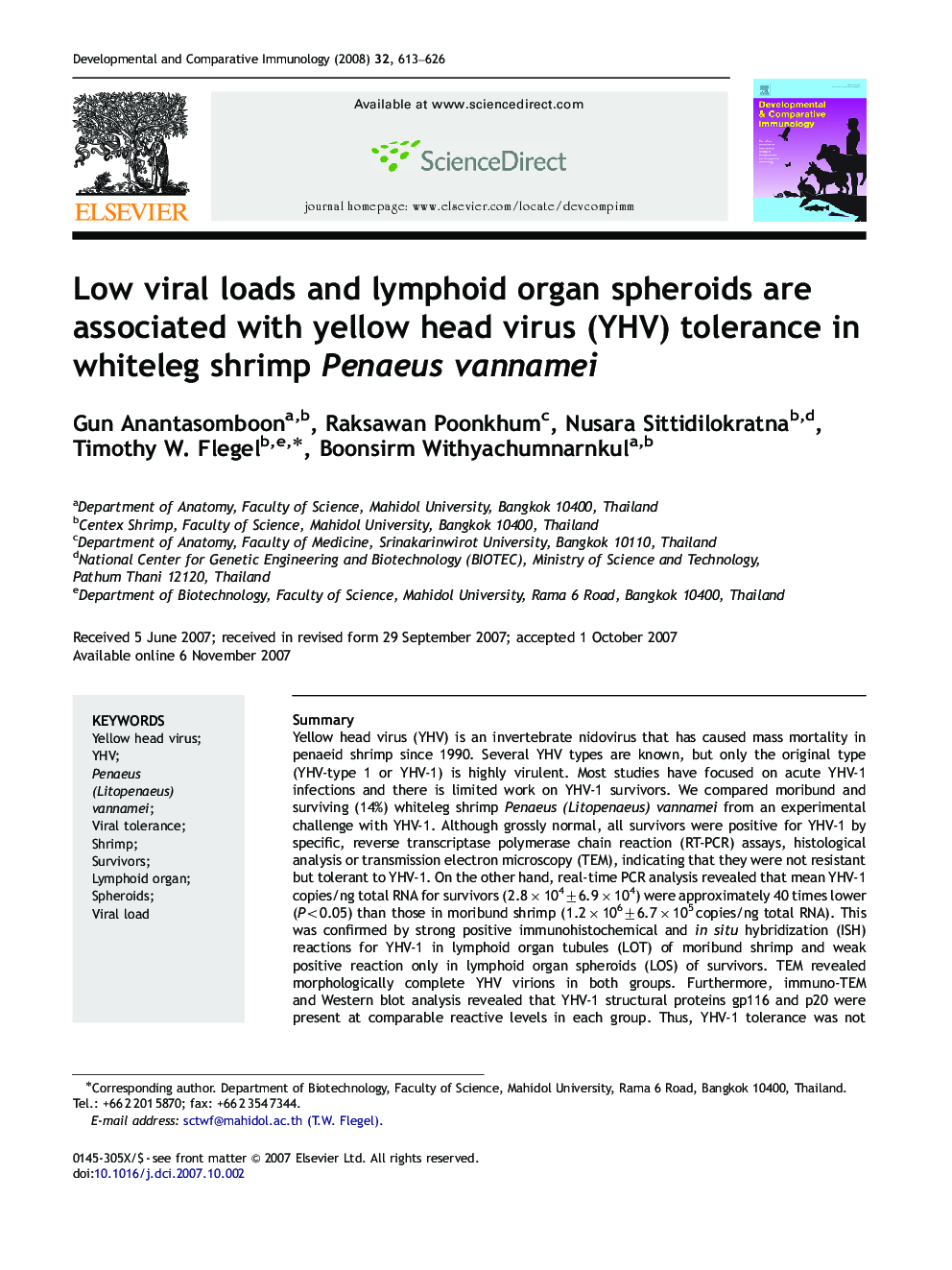| Article ID | Journal | Published Year | Pages | File Type |
|---|---|---|---|---|
| 2430179 | Developmental & Comparative Immunology | 2008 | 14 Pages |
SummaryYellow head virus (YHV) is an invertebrate nidovirus that has caused mass mortality in penaeid shrimp since 1990. Several YHV types are known, but only the original type (YHV-type 1 or YHV-1) is highly virulent. Most studies have focused on acute YHV-1 infections and there is limited work on YHV-1 survivors. We compared moribund and surviving (14%) whiteleg shrimp Penaeus (Litopenaeus) vannamei from an experimental challenge with YHV-1. Although grossly normal, all survivors were positive for YHV-1 by specific, reverse transcriptase polymerase chain reaction (RT-PCR) assays, histological analysis or transmission electron microscopy (TEM), indicating that they were not resistant but tolerant to YHV-1. On the other hand, real-time PCR analysis revealed that mean YHV-1 copies/ng total RNA for survivors (2.8×104±6.9×104) were approximately 40 times lower (P<0.05) than those in moribund shrimp (1.2×106±6.7×105 copies/ng total RNA). This was confirmed by strong positive immunohistochemical and in situ hybridization (ISH) reactions for YHV-1 in lymphoid organ tubules (LOT) of moribund shrimp and weak positive reaction only in lymphoid organ spheroids (LOS) of survivors. TEM revealed morphologically complete YHV virions in both groups. Furthermore, immuno-TEM and Western blot analysis revealed that YHV-1 structural proteins gp116 and p20 were present at comparable reactive levels in each group. Thus, YHV-1 tolerance was not associated with absence of gp116 as previously reported for palaemonid shrimp. Instead, it was associated with the presence of YHV-positive LOS and a relatively low viral load.
